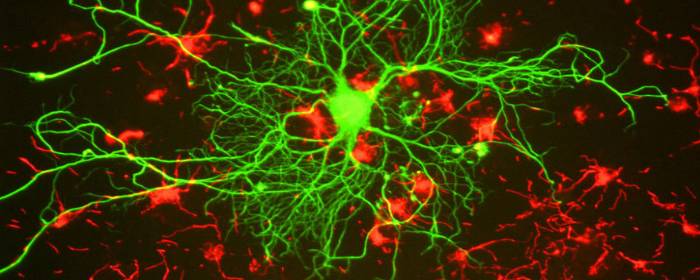Spinal cord injury can be one of the most devastating injuries. Long neurons that extend from the brain down the spinal cord are severed and scarred. In most cases, this damage can never be repaired. If patients survive an injury to the spinal cord, they can be permanently paralyzed. Researchers have attempted to use high-dose steroids and surgery to preserve the spinal cord, but these approaches are either controversial or largely ineffective.
Ideally, one would create an environment in which nerve cells in the spinal cord could regrow and take up their old tasks of sensation and movement. One of the most promising approaches to do just this is stem cell transplantation.
To test this concept, researchers used stem cells derived from human placenta-derived mesenchymal stem cell tissue (not embryonic stem cells) to form neural stem cells in the laboratory. These neural stem cells have the ability to become neuron-like cells, similar to those found in the spinal cord. The researchers then used these stem cells to treat rats that had experimental spinal cord injury. The results were impressive.
Rats treated with neural stem cells regained the partial ability to use their hindlimbs within one week after treatment. By three weeks after treatment, injured rats had regained substantial use of their hindlimbs. The researchers confirmed that this improvement was due to neuron growth by using various specialized tests (e.g. electrophysiology, histopathology). Rats that did not receive stem cells did not regain substantial use of their hindlimbs at any point in the study.
This work is particularly exciting because it shows that stem cells can restore movement to animals who were paralyzed after spinal cord injury. Moreover, the researchers used human stem cells derived from placenta, which suggests that this effect could be useful in human spinal cord injury patients (perhaps even more so than in rats). While additional work is needed, these results offer hope to those who may one day develop severe spinal cord injury.
Reference:
Zhi et al. (2014). Transplantation of placenta-derived mesenchymal stem cell-induced neural stem cells to treat spinal cord injury. Neural Regen Research, 9(24): 2197–2204.


 St. Petersburg, Florida
St. Petersburg, Florida
